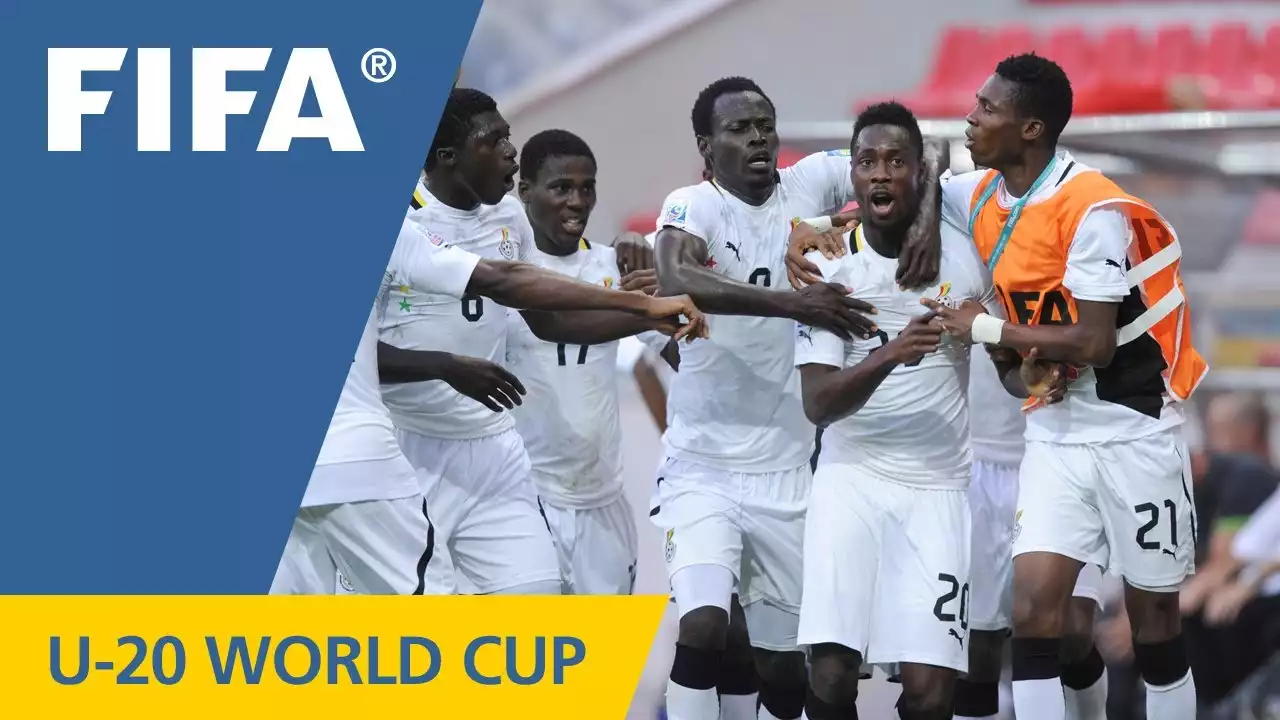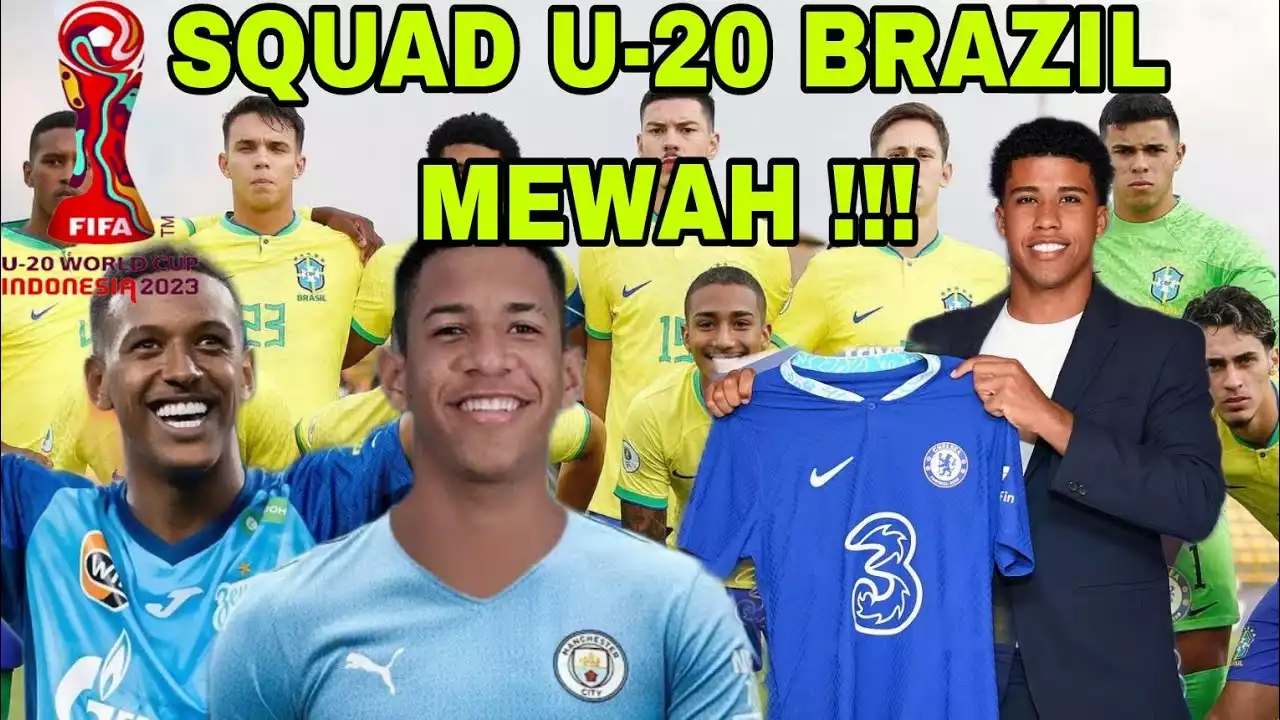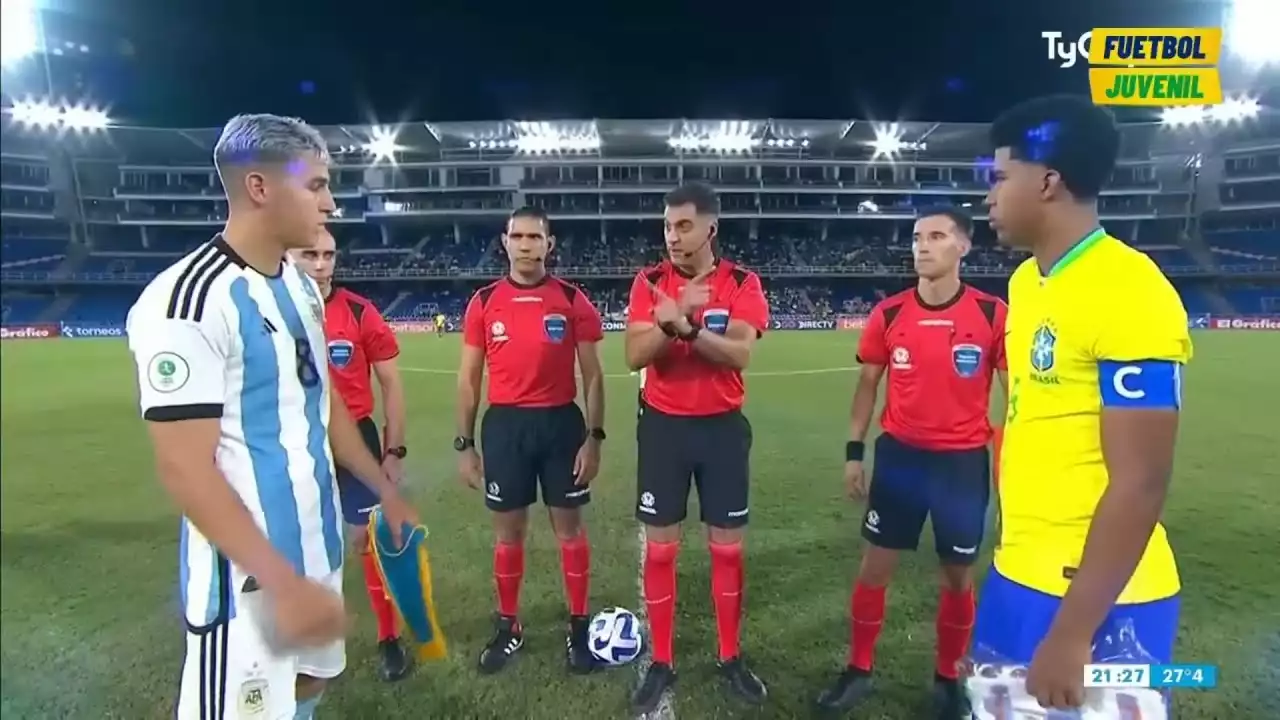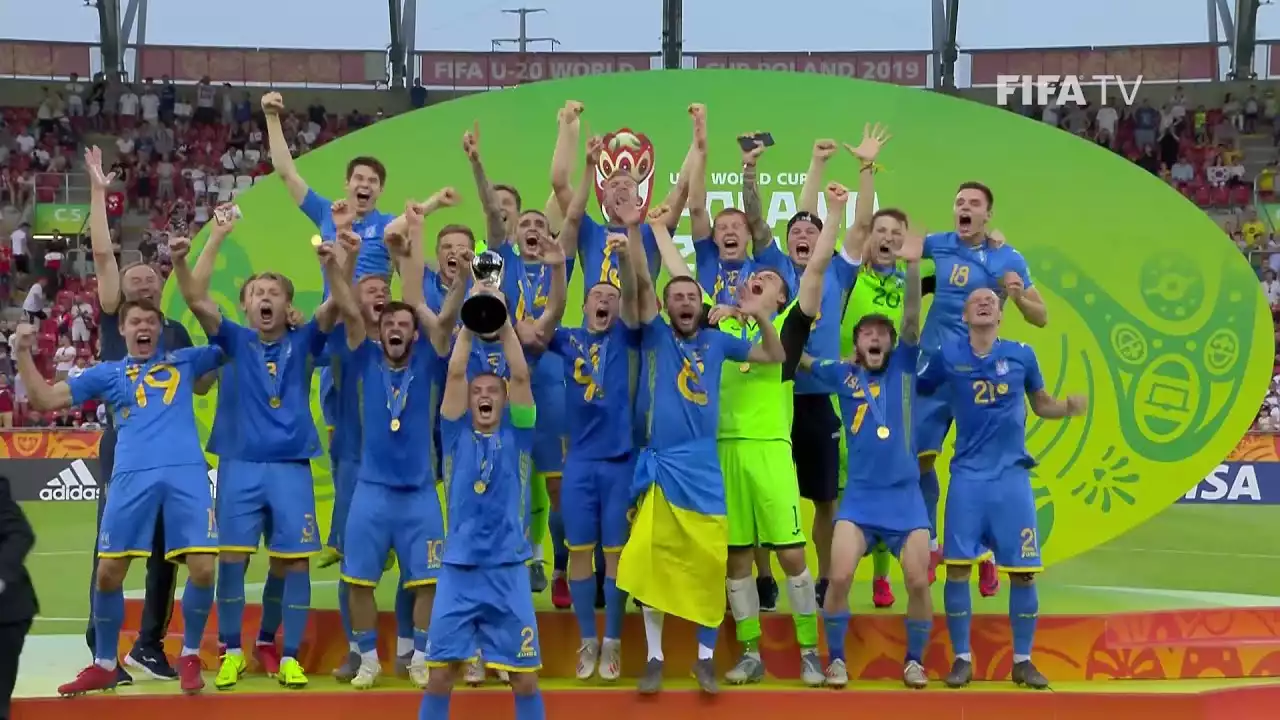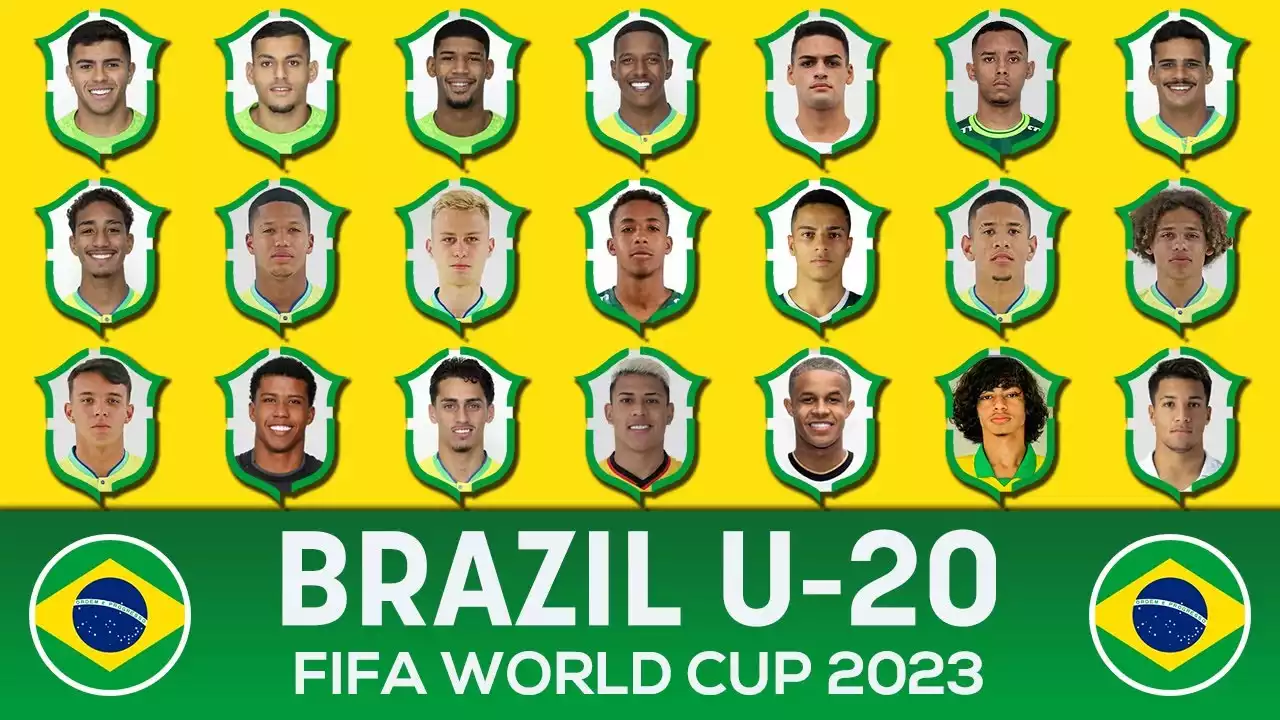The significance of team performances in the U-20 World Cup
The U-20 World Cup serves as a platform for young talents to showcase their skills and potential on an international stage. It is a stepping stone for up-and-coming players, providing them with an opportunity to shine and catch the attention of scouts from top clubs around the world. However, it is not only individual brilliance that captures the imagination of football enthusiasts; it is the collective efforts of a team that often leave a lasting impression.
Team performances in the U-20 World Cup can define a generation of players and serve as a turning point in their careers. These performances not only demonstrate the talent and potential within a squad but also highlight the importance of teamwork, resilience, and tactical acumen. The memories created by these performances resonate with fans and become part of the tournament's rich history.
Team performance 1: Brazil's dominant run in 1983
In 1983, Brazil's U-20 team produced an awe-inspiring performance that showcased their attacking prowess and technical brilliance. Led by the likes of Dunga and Taffarel, Brazil swept aside their opponents with ease, scoring an incredible 23 goals in just five matches. Their attacking trio of Geovani, Romario, and Edmar wreaked havoc on defences, leaving them in disarray.
Brazil's dominance was epitomized in their final match against Argentina, where they secured a resounding 3-1 victory. The team's fluid passing, quick transitions, and clinical finishing were a joy to behold. This performance not only earned Brazil their first U-20 World Cup title but also set the stage for future success at the senior level.
Team performance 2: Argentina's triumph in 2001
In 2001, Argentina's U-20 team delivered a performance that would go down in history as one of the most dominant displays in U-20 World Cup history. Led by their talismanic captain, Javier Saviola, Argentina steamrolled their way to the final, scoring an astonishing 27 goals in just seven matches.
The final itself was a masterclass in attacking football, as Argentina faced off against Ghana. From the first whistle, Argentina stamped their authority on the game, displaying breathtaking pace, intricate passing, and clinical finishing. Saviola, along with his strike partner Maxi Rodriguez, ran riot, scoring a brace each to secure a comprehensive 5-0 victory.
Argentina's performance in the 2001 U-20 World Cup showcased their ability to dominate games and overwhelm their opponents with their attacking prowess. It was a performance that left a lasting impact on the tournament and set the stage for future success for Argentina's footballing prodigies.
Team performance 3: Ghana's impressive campaign in 2009
The U-20 World Cup in 2009 witnessed an extraordinary display of skill, athleticism, and determination from Ghana's U-20 team. Led by their talismanic captain, Andre Ayew, Ghana showcased their ability to overcome adversity and perform at the highest level.
Ghana's campaign was marked by their resilience and ability to come back from seemingly impossible positions. In the quarterfinals, they found themselves 2-0 down against South Korea, but a spirited fightback, including a late equalizer in injury time, saw them win in a penalty shootout.
In the final against Brazil, Ghana once again displayed their never-say-die attitude. Despite falling behind early in the game, they fought back and equalized in the dying minutes of normal time, taking the match into extra time. Although they ultimately lost in a penalty shootout, Ghana's performance throughout the tournament showcased their determination and skill.
Team performance 4: Germany's record-breaking performance in 2017
Germany's U-20 team created history in the 2017 edition of the tournament with a record-breaking performance that saw them lift the trophy for the first time. Led by a talented squad, including the likes of Niklas Stark and Maximilian Eggestein, Germany stormed through the tournament, displaying both defensive solidity and attacking flair.
Germany's performance was characterized by their ability to control matches and dictate the tempo. Their disciplined defense conceded just one goal throughout the tournament, while their potent attack scored 12 goals. In the final against Venezuela, Germany showcased their clinical finishing and tactical astuteness, securing a 1-0 victory to claim the championship.
Germany's performance in the 2017 U-20 World Cup was a testament to their ability to execute their game plan and adapt to different opponents. It marked a significant milestone in their footballing history and highlighted the strength of their youth development system.
Team performance 5: Spain's dominant display in 1999
In 1999, Spain's U-20 team produced a mesmerizing performance that captivated football enthusiasts around the world. Led by their influential captain, Xavi Hernandez, Spain showcased their technical brilliance and attacking flair en route to the final.
Spain's performance throughout the tournament was characterized by their possession-based style of play and intricate passing. They displayed an exceptional ability to control and manipulate the ball, leaving their opponents chasing shadows. In the final against Japan, Spain's dominance was evident as they secured a comprehensive 4-0 victory, with Xavi orchestrating their midfield masterclass.
Spain's performance in the 1999 U-20 World Cup showcased their ability to dominate games with their possession-based style of play. It served as a springboard for the success of their golden generation at the senior level, including winning the FIFA World Cup in 2010.
Key factors behind these memorable team performances
These memorable team performances in the U-20 World Cup were not solely the result of individual brilliance but a combination of several key factors. First and foremost, effective team chemistry and cohesion played a crucial role in the success of these teams. The ability to understand each other's strengths and weaknesses, both on and off the field, fostered a strong bond that translated into impressive performances.
Tactical astuteness and adaptability were also key factors in these team performances. The ability to adjust game plans based on the strengths and weaknesses of opponents showcased the tactical intelligence of the coaches and the players' ability to execute those plans.
Furthermore, mental resilience and determination were vital in overcoming challenges and adversity. The ability to bounce back from setbacks, as seen in Ghana's campaign in 2009, showcased the mental strength and character of these young players.
Impact of these performances on players' future careers
The U-20 World Cup serves as a launching pad for young talents to make a name for themselves and secure moves to bigger clubs. The performances of these teams showcased the potential of individual players and paved the way for their future success.
Many players who shone in these tournaments went on to have illustrious careers at the senior level. Players like Romario, Xavi Hernandez, and Javier Saviola became household names, representing their respective national teams and winning numerous titles at the highest level.
The exposure gained from these memorable team performances in the U-20 World Cup helped these players attract the attention of top clubs and scouts. It provided them with a platform to showcase their skills and abilities, ultimately shaping their careers and opening doors to opportunities at the highest level of the game.
